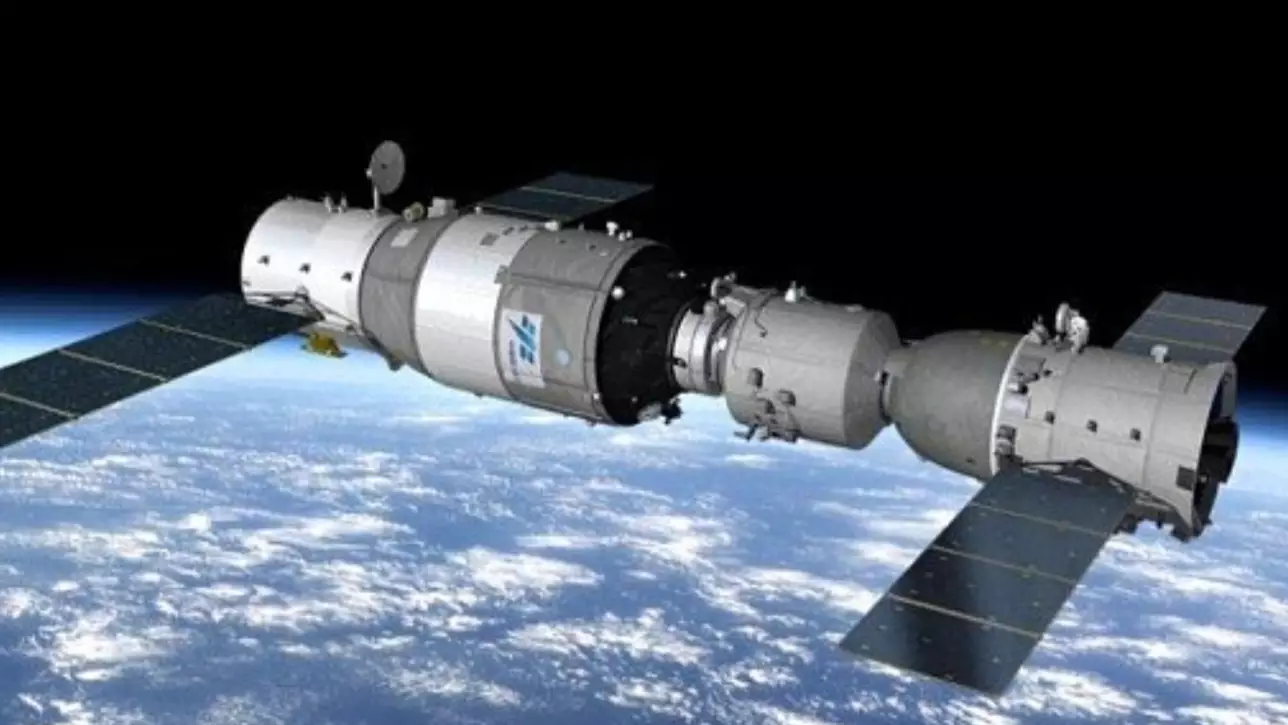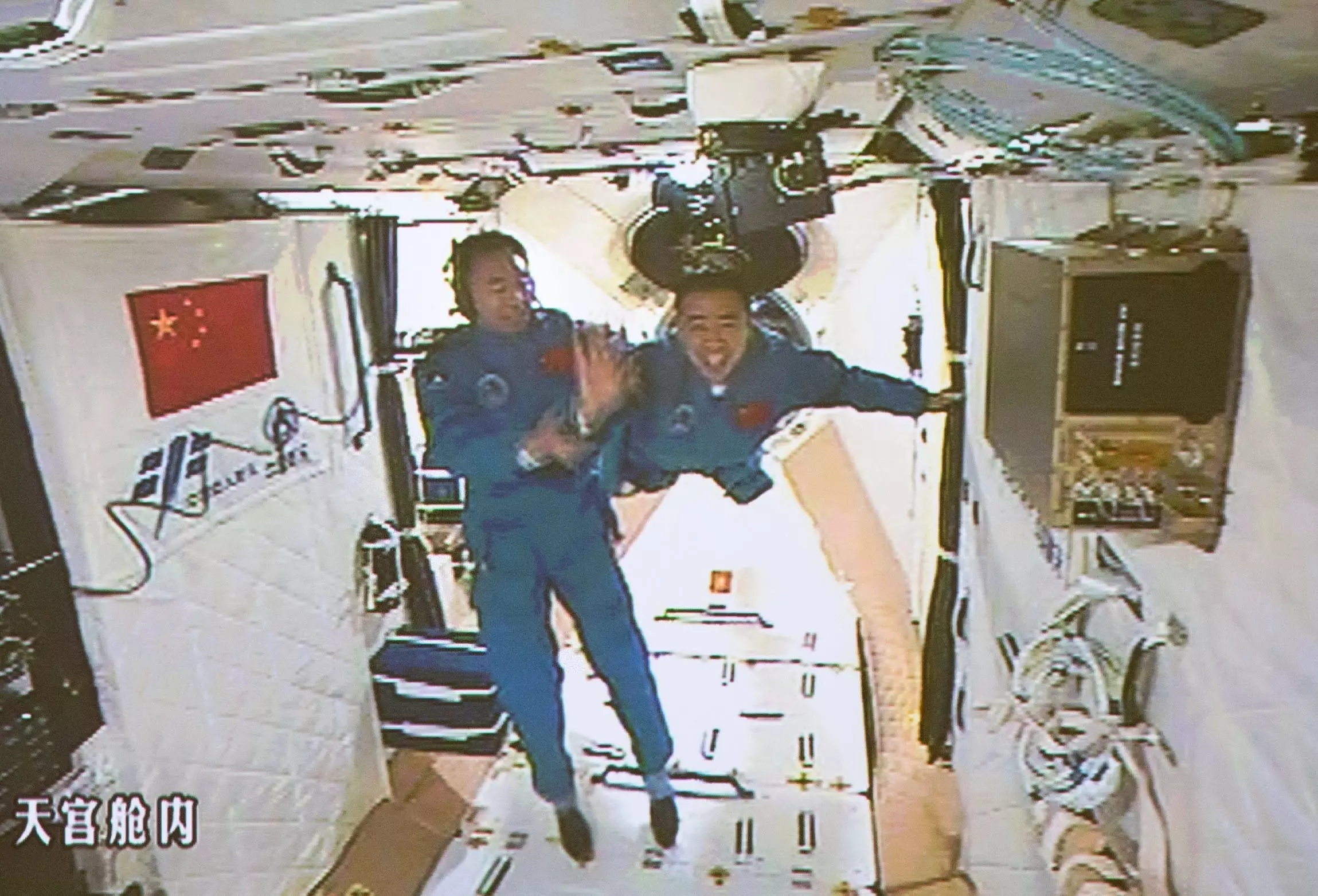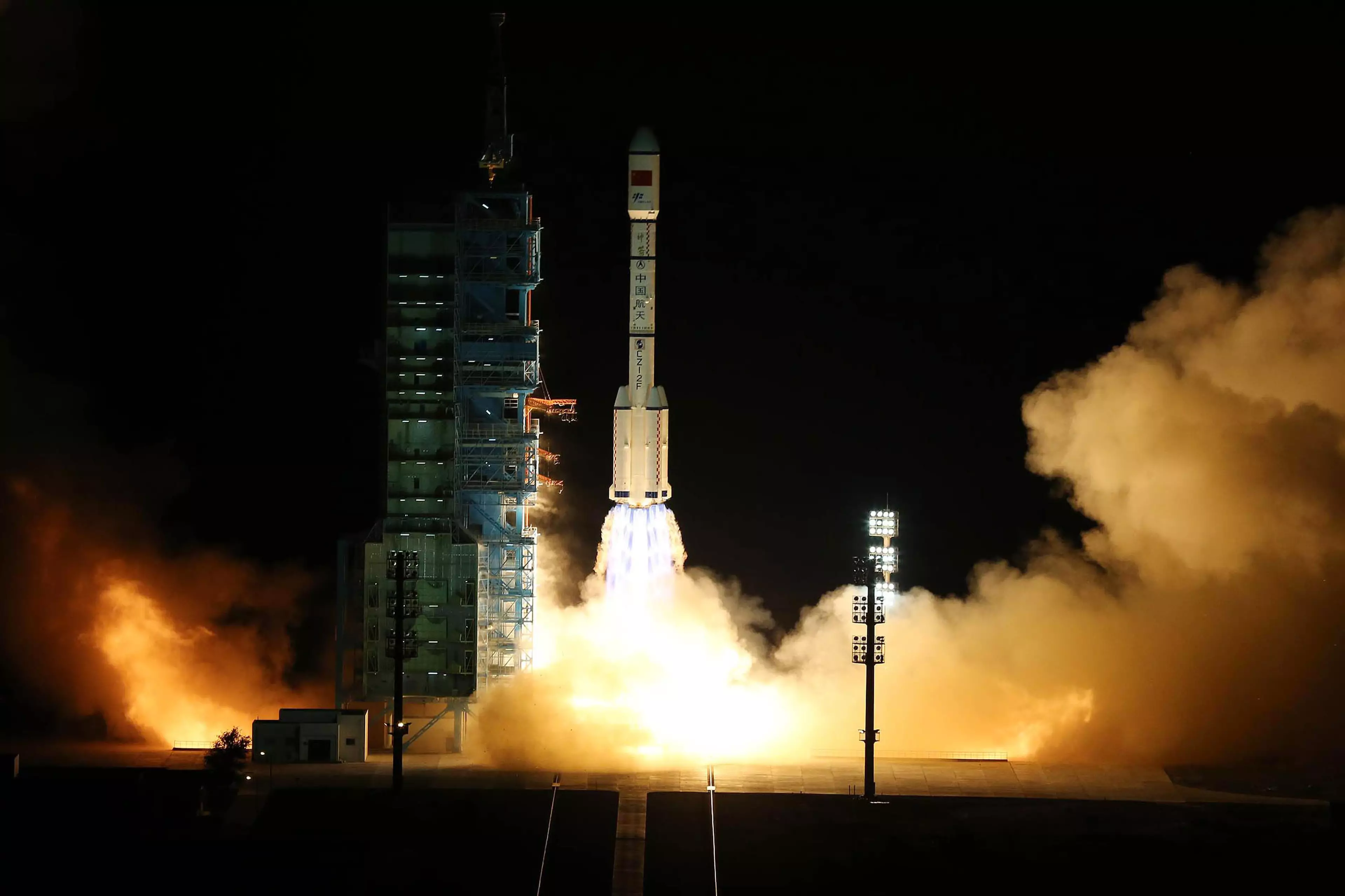
China's Tiangong-2 spacecraft is plummeting back to Earth after purposely falling out of the planet's orbit.
But before you set off on a Deep Impact style evacuation, the station will reportedly burn up during its rapid descent, with its some of its remains scattering in the Pacific Ocean later tonight. So it should not pose a risk to the public.
The spacecraft - the name of which translates to 'Heavenly body' in English - was only ever meant to be a temporary fixture and the wheels of its destruction actually began turning a year ago.
Advert
Its real purpose was to test out some of the technologies that are going to be used on China's much larger space station - still a fifth of the size of the International Space Station - set to be launched next year.

Today that process will come to a head as the spacecraft falls out of the Earth's orbit and picks up speed before burning up in the planet's atmosphere.
According to reports, it dropped from 180 miles to 120 miles above the planet in just an hour.
Advert
Tiangong-2 set off on its journey of exploration in September 2016. Manned by two astronauts at the time, they carried out a series of experiments, including physiological tests studies in other areas of science.
After a month, the pair returned home, and in 2017 a cargo spacecraft docked with the spacecraft several times to check the docking and refuelling capabilities.
Last year, it began to lower its orbit in preparation for the full descent back to Earth. It's thought that most of it will burn up in the atmosphere upon re-entry, but any remaining parts will land in the ocean.

The news comes a few months after the unexpected crash landing of its predecessor, Tiangong-1 - which was carrying toxic chemicals at the time - which exploded and fell to Earth last year after the Chinese space agency lost contact with it in 2016.
Advert
At the time, the Chinese foreign ministry spokesman Lu Kang attempted to ease fears.
Speaking last year, he said: "If there is a need, we will promptly be in touch with the relevant country.
"As to what I have heard, at present the chances of large fragments falling to the ground are not very great, the probability is extremely small."
Fortunately, its remains landed into the sea. It's understood that Chinese authorities will make sure they have much more control over Tiangong-2's descent.
Featured Image Credit: China Manned Space AgencyTopics: Science, World News, Interesting, China